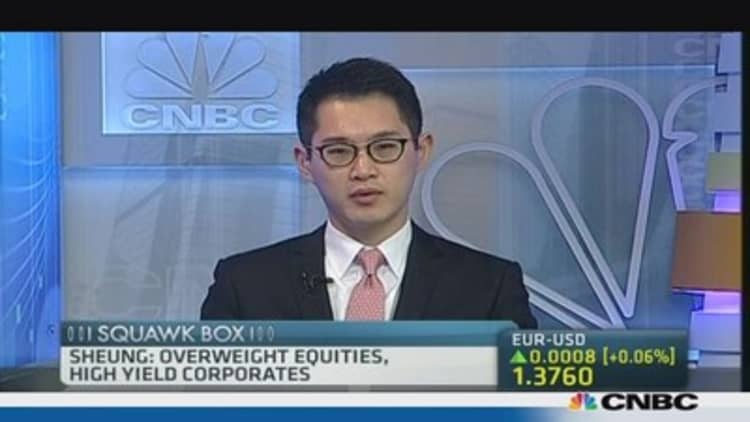Asian equity markets were mixed on the first trading day of the year with South Korea and Thailand among the region's top losers in a thin liquidity session due to the holiday period.
The first piece of data to kick off the New Year was Chinese factory activity with HSBC's final reading on manufacturing for December hitting a three-month low. The data follows Wednesday's official reading, which missed expectations, and confirmed that the mainland economy lost some momentum in the final quarter of 2013.
"The biggest surprise here is the weak new export order reading with new orders contracting. We had the Korea PMI out earlier as well, which also showed contracting export orders so the trade cycle isn't firing on all cylinders," said Frederic Neumann, managing director and co-head of Asian Economics Research at HSBC.
(Read more: Ten trends that will shape Asia in 2014: Carnegie)
Japanese markets remain closed and will resume trade on January 6. Most markets in the region were closed on Wednesday for New Year's Day with the exception of Shanghai.

Shanghai slips 0.3%
Fears of slower economic growth weighed on mainland stocks following December's disappointing factory activity.
Concerns of strained liquidity also hit financials after five firms said they received approval to issue new shares, ending a year-long freeze on initial public offerings (IPOs). Hua Xia Bank led losses by 3 percent and Citic Securities fell 1.2 percent.
"On one hand, this is positive for financials as it helps increase fees and therefore boosts the top line, however with over 700 further companies looking to list this year, the clear concern here is where all the money will come from to fund the equity purchases," wrote Chris Weston, market strategist at IG in a morning note.
(Read more: Investors, heed this resolution: Don't get cocky)
Kospi 2.2% lower
South Korean stocks saw their biggest daily percentage fall since July 2012, closing at their lowest level in over two weeks. The yen's weakness overshadowed economic optimism after manufacturing activity hit a seven-month high in December.

Kia Motors and Hyundai Motor slumped 6 and 5 percent, respectively. Also contributing to the sell-off was news that both carmakers forecasted their weakest annual sales growth in over ten years for 2014.
Index heavyweight Samsung Electronics tumbled 5 percent on the back of a disappointing earnings outlook.
(Read more: This Asian market laggard could shine in 2014)
Emerging markets slip
The Thai benchmark SET dropped 5.23 percent to close at 1230.77, tapping its lowest levels since September 2012, on concerns of a delay in February elections, while the hit a four-year low against the greenback.
Meanwhile, Indian shares ended the day down 1.19 percent. The S&P Sensex had been higher earlier in the day after data showed foreign funds were buyers of $1.64 million in stocks on Wednesday.
Sydney up 0.3%
Australia's benchmark index rose to a new five-week high thanks to support from mining stocks. Copper prices hovered around a four-month peak, helping Atlas Iron rally 3.5 percent and BC Iron rise 2 percent.
(Read more: Why gold bugs should brace for an 'awful' 2014)
Property stocks rose after home prices across major cities rose nearly 10 percent in 2013, their best performance in four years, according to RP Data-Rismark. Stockland, Westfield and Mirvac Group rallied over 1 percent each.
— By CNBC.com's Nyshka Chandran. Follow her on Twitter @NyshkaCNBC

